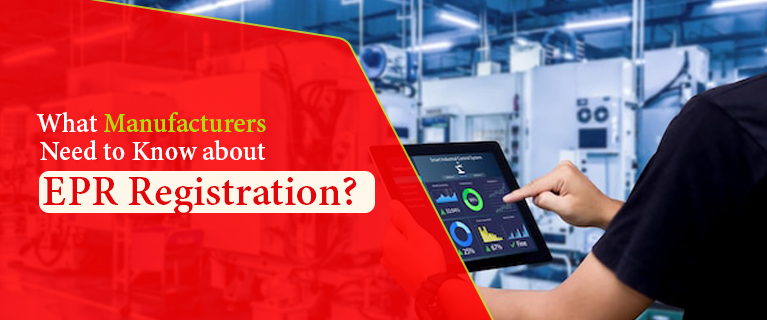How Is EPR Registration Useful For Businesses?
In an era where sustainability and environmental concerns take center stage, businesses are increasingly recognizing the importance of Environmental Product Responsibility (EPR) as a vital component of their corporate strategy. EPR registration is a gateway to demonstrate your commitment to the environment, meet legal obligations, and build a positive brand image. In this blog, we'll explore EPR registration, its significance, and how it can benefit your business.
Understanding EPR Registration
What is EPR?
EPR, or Environmental Product Responsibility, is a principle that requires manufacturers and businesses to take responsibility for the environmental impact of their products or services throughout their entire lifecycle. This approach shifts the focus from end-of-life disposal to the design and production stages, encouraging environmentally responsible practices.
What is EPR Registration?
EPR registration is the formal process by which a business or organization declares its commitment to adopting and implementing EPR principles. It involves meeting specific regulatory requirements, ensuring compliance with environmental laws, and actively participating in sustainable practices.
The Significance of EPR Registration:
● Legal Compliance
One of the most crucial reasons for EPR registration is legal compliance. Many countries have introduced EPR regulations and laws that require businesses to manage the environmental impact of their products. There can be legal consequences and fines in case of failure.
● Reduced Environmental Footprint
EPR registration encourages businesses to minimize their environmental footprint by considering the entire lifecycle of their products or services. This includes reducing waste, energy consumption, and emissions, which ultimately benefits the environment.
● Improved Corporate Image
Consumers and stakeholders increasingly expect businesses to demonstrate their commitment to environmental responsibility. EPR registration is a powerful tool for enhancing your corporate image and showcasing your dedication to sustainability.
● Cost Savings
Efficient waste management and resource optimization often lead to cost savings. By embracing EPR principles, businesses can reduce operational costs while improving their environmental performance.
● Innovation and Efficiency
EPR registration fosters innovation in product design and manufacturing processes. By reevaluating and optimizing their practices, businesses can develop more eco-friendly products and services that can lead to market differentiation.
Read Also This - How To Manage The Extended Producer Responsibility Registration ProcessHow to Register for EPR Registration?
● Assess Applicability
The first step in EPR registration is to determine whether it's applicable to your business. Depending on your industry and geographical location, there may be specific regulations that apply. Conduct a thorough assessment to understand the requirements.
● Formulate an EPR Strategy
Develop a comprehensive EPR strategy that outlines how your business intends to adopt and implement environmental responsibility principles. This strategy should cover everything from product design to disposal and recycling.
● Regulatory Compliance
Ensure your business complies with the relevant environmental laws and regulations. This may include waste management, recycling, and pollution control standards.
● Training and Awareness
Train your staff and make them aware of the importance of EPR principles. The successful implementation of EPR requires a collective effort within the organization.
Report and Monitor
Regularly report your environmental performance and monitor the impact of your EPR strategy. Transparency and accountability are crucial components of EPR registration.
The Benefits of EPR Registration:
● Brand Value
EPR registration enhances your brand's value and reputation, demonstrating your commitment to sustainability and responsible business practices.
● Market Access
Many markets require EPR registration to access their products or services. Being EPR-compliant can open up new business opportunities.
● Reduced Environmental Impact
EPR registration directly contributes to reducing the environmental impact of your business operations, helping to conserve resources and protect the planet.
● Competitive Advantage
EPR registration gives you a competitive edge. It can differentiate your business from competitors, appealing to environmentally conscious consumers.
● Cost Savings
Through improved waste management and resource optimization, EPR registration can lead to significant cost savings.
Conclusion
EPR registration is a powerful tool for businesses to demonstrate their commitment to environmental responsibility, legal compliance, and sustainability. Embracing EPR principles not only benefits the environment but also enhances your corporate image, access to markets, and competitive advantage. To secure a sustainable future for your business and the planet, EPR registration is a step in the right direction. Are you ready to take that step?



Comments
Post a Comment